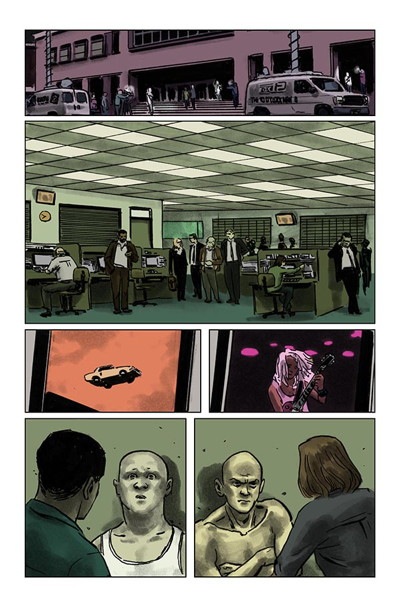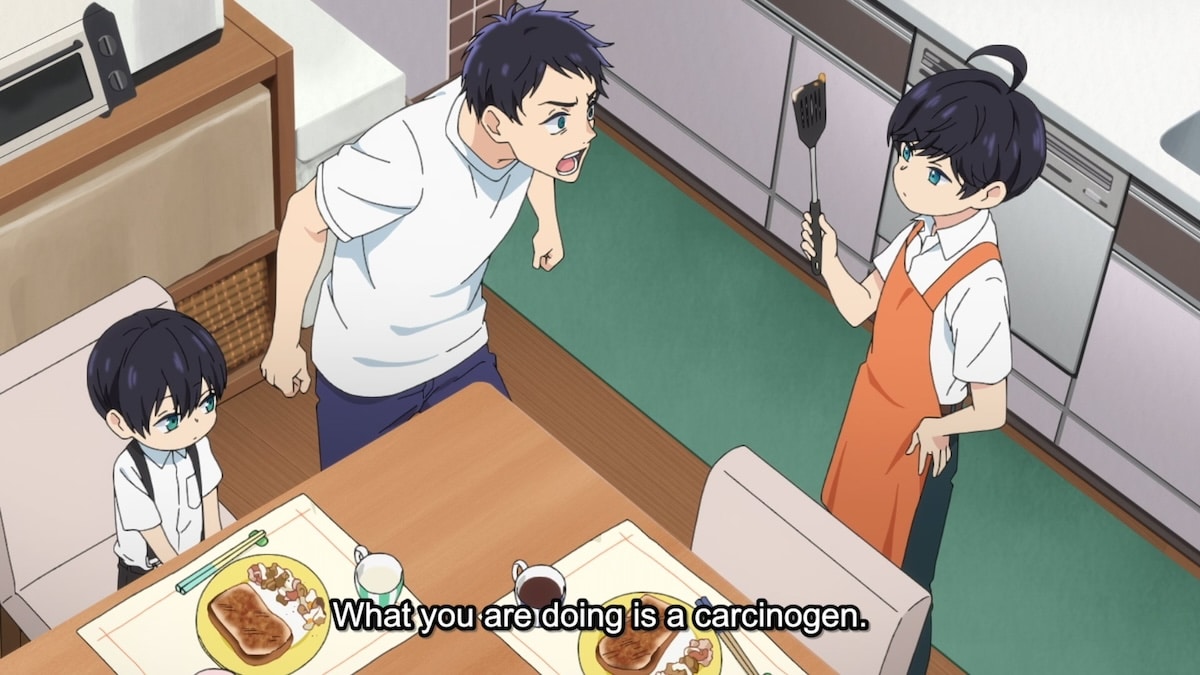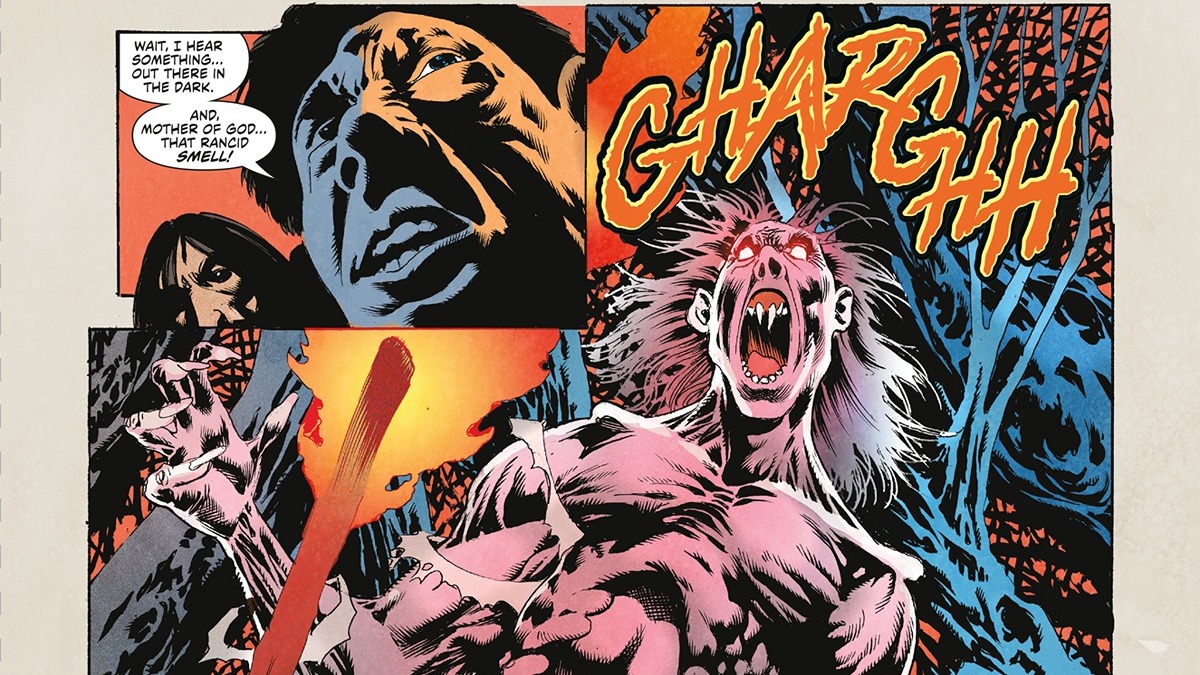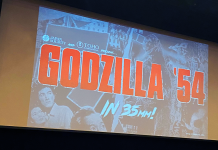We’re a whole week into the new year and stuff is coming at you like a burbling popcorn machine:
§ What was that you guys were saying about webcomics being out of the mainstream and all? Webcomics merch and distribution company TopatoCo just bought a building to house their operations. So there.
§ Jackie O, comics editor—how JFK’s widow edited comics for Doubleday.
§ Warren Ellis chats with Chris Arrant at Robot 6. He’s entered a career phase of mostly writing novels and not paying attention to the comics industry. However, he still gets off a few sharp ones:
Creator-ownership isn’t a thing the marketplace responds to. If Steve Niles and Jimmy Palmiotti had called their anthology anything but Creator-Owned Heroes, it’d probably still be running. I loved the idea of that book, but the title just sounded like the comics version of organic granola. Neither the majority of the audience nor the comics stores give a shit about creators owning their work, I’ve found. What the audience responds to, still — the retail community tends to be a little further behind the curve, due not least to the nature of the direct market’s mechanism — are new ideas, done well.
§ The future of YA comics is going to be digital, Valerie Gallaher argues, and she’s got a point:
But I think the future for YA comic book material is largely in Digital. Even little kids are handy with e-reading devices and iPads. These are the formats they are growing up using. If they are reading their picture-books on the iPad now, chances are they’re going to be using similar devices for most of their reading material as they get older; and to think otherwise is to be seduced by the comforting allure of our own childhoods.
I’ve had a few field observations on this recently, as more and more of my friends have kids. It’s hardly scientific because most of my friends are already book lovers and keep giving their kids books. It is interesting thought. The other day I brunched with a friend with an infant of nearly a year and of course he played with her iPhone but he also enjoyed looking at pictures in a book, especially when the pictures included a tractor or an elephant. When kids are given still images, they still respond, and toddlers will still pick up a crayon to draw before they start coding apps. Still, you’d be dumb not to go into the kidgital space if you’re aiming at young readers.
§ Scott Lobdell yells at puppies urges crowdfunders to support Siike Donnelly’s SOLESTAR, which is a few grand short with a few days to go. Give it a look—it’s inspired by Donnelly’s own efforts to overcome a brain aneurysm and features a bunch of different artists drawing a fairly heartfelt superhero story.
§ I’m waiting for the big post that links to all the Comics Reporter Holiday interviews, but here are some pull quotes. KRAMERS ERGOT pioneer Sammy Harkham::
Who wins? You hear so many horror stories of cartoonists who sign on with a major company, a major publishing house, and it doesn’t make sense. [laughs] As comics become more and more like the rest of the publishing world, the only people that are going to become more successful with book sales are going to be people doing sports books, or sensationalistic autobio or political books. That’s exactly the same as the regular book world. And that’s fine. To me, it becomes a matter of embracing what it is. If you have a compulsion to draw comics, that’s something you can’t change. That’s a fucked-up thing inside you. You’re a talented writer and you’re a talented artist, and you’re now going to spend time making work that’s barely going to be seen? You’ve got to own that, and embrace it and say, “Okay. This is what I do.” It’s for 500 people or less, or maybe a little bit more. But who cares? It seems… it’s kind of ending now, but it seemed people were having these outsized expectations of what comics can give you. It’s a niche thing. And that’s cool.
And if you’ve ever wanted to know more about frequent and passionate Beat commenter Matthew Southworth, this is it. (that’s his art above.)
Like all love affairs, though, my relationship to comics has grown more conflicted and complicated over time. I’m frustrated to see a bizarre addictive buying pattern among readers, that everyone will scream and shout that so-and-so’s being killed or the Big Two are doing another event that requires the reader to buy piles and piles of comics they don’t even like, but then they go out and buy them, if only for fodder for their critical blogs. There are so many great comics out there: some of them are published by Marvel and DC, a great many of them are not. That there are readers out there who check out comics web sites every morning but still have never read an issue of Love and Rockets or who won’t sit down and read something by Chris Ware or Dan Clowes or Charles Burns… that won’t read Paul Grist’s great superhero comics like Jack Staff or Mudman just because they don’t have the Marvel or DC logo up in the corner — I just think that’s downright stupid. And I’m not saying that they should give up Marvel or DC — I haven’t, I still buy things from both companies, and I enjoy working with them a great deal — just that there’s so much else out there that is fantastic and that is withering on the vine because readers and retailers don’t try it out.
§ Here is your “They Hate Us” story of the month; Alan Moore’s NEONOMICON has been officially banned from a Greenville, NC SC library, after the head librarian decided it had to go. She can be seen in the above video, and yes, she seems to have stolen Dolores Umbridge’s jacket. She made the decision despite the book having won the Bram Stoker Award and others standing up for it. The CBLDF has some background on the case here.
§ And yet! Schools embrace graphic novels as learning tool—you don’t say!
There’s no data on precisely how many schools nationwide use graphic novels. But no one disputes that in other markets the popularity of the comic-style books — adapted to classic literature, biographies, science, math and other subjects — is on the rise. Karen Gavigan, an assistant professor at the University of South Carolina who has focused her research on graphic novels, points out that their sales have increased by nearly 40 percent over the past 10 years. And public libraries have seen significant increases in circulation after adding such material to their collections. “A whole range of kids just love these,” Gavigan said.
§ Cartoon Brew attempts to quantify the most viewed animation of 2012; a Minecraft take-off beat out that video of a CGI hawk stealing a CGI baby.
§ Tucker Stone offers a fairly manly 19 Best Comics of 2012.
§ Doctor Who in the style of Edward Gorey—via everywhere.










That book banning story is for Greenville, SC not Greenville, NC. Was worried my hometown went backwards for a second.
1) I knew Jackie O. was at Doubleday, and I new Doubleday published Larry Gonick’s Cartoon History of the Universe. I didn’t know of the connection!
2) YA digital… one problem, and it’s a biggie: ebook publishers are hesitant to allow libraries to distribute e-books, even though libraries are distributing ebook files like books. Once it’s checked out, no one else can read that copy. But ebook files don’t fall apart like books, so publishers aren’t likely to let them circulate forever.
http://lj.libraryjournal.com/2012/10/opinion/editorial/a-modest-ebook-proposal-a-big-six-publisher-has-already-provided-a-model-to-build-on/
Oh, and Crayola sells a stylus for iPads. It looks like a marker.
Obviously geared at my previous comments. Touché. ;)
Now, now, I never said that *some* webcomics weren’t financially successful. A handful most certainly are. TopatoCo handles merch for some of the biggest webcomics out there.
And a smaller handful still shame even the richiest of print pros (I’m looking at you, Oatmeal and Penny Arcade!)
What I was referring to was that the “mainstream” comics media and awards (seemingly) tend to favor webcomickers with a print connection. So there’s no crime in there being a reality show just for the webcomickers who aren’t nearly as successful as those involved with TopatoCo.
It’s no secret that a select few webcomickers have been successfully doing an end run around the comic shop scene for quite a few years now.
They’ve made it work without the blessing of the gatekeepers.
I say good on them. :)
(And good on The Beat for posting that.)
“It’s no secret that a select few webcomickers have been successfully doing an end run around the comic shop scene for quite a few years now. They’ve made it work without the blessing of the gatekeepers.”
See, I don’t understand this AT ALL — why wouldn’t you want sales in as many locations as possible? For one example: I made a big effort to track down the collections of the web comic OGLAF, and it’s one of my top sellers for the year. These were all entirely new eyeballs and sales for that comic.
-B
Well, that’s a good question.
Honestly, I think many webcomickers ignore the whole direct market scene as much as the direct market ignores most webcomics.
They don’t know much about it, and/or just don’t care. Many webcomics have a large younger, female readership, and comic shops seem to cater to middle-aged men.
Top of mind awareness… you buy what you’re familiar with.
I think much of “the industry” is just unaware of the existence of many of these comics. And many bigger webcomickers simply don’t care (or even need) the direct market at all.
Just an opinion based on observation.
I think people are misunderstanding what we were saying. What I was trying to say is that webcomics aren’t treated the same as mainstream print comics. They don’t get as much media coverage, and they don’t get an equal crack at “industry” awards. This can be proven quite easily. There are many webcomics with large readerships that do extremely well and have more readers than some large print titles. That was the only point I have tried to make. We never said webcomics don’t do well, because we know that is not true. Our point is that they aren’t regarded equally in some circles.
I know that there are many good webcomics that would love to be “in as many locations as possible”. It is a topic that comes up a lot in the webcomics community. People want to be in the comic shops they want to be known. It is not an easy thing for webcomics for many reasons– the preferred method for distribution being one of them. I think some would do extremely well if given the chance. That has been our only point. Webcomics are a viable and successful method of comic story telling, but they would like support, acceptance, and equality.
I am really glad that you brought in OGLAF and it sells well. Now we know they sell. Now ask yourself what other webcomics titles might do well? There are many.
I think Thom is talking about larger titles, but I think the webcomics community wants the chance and are open to it. I have been part of many discussions about this very topic. I disagree that webcomickers don’t want to be part of the direct market. I do think that the direct market has a different demographic and it isn’t as easy to approach or gain entry for many webcomics (unless you get picked up by a publisher) There are some great titles out there with a lot of readers. Go look! Trust me!
Yeah, to clarify — I was talking about, say, a comic like Penny Arcade or Homestuck not really *needing* the direct market to move books. Some webcomics bypass the direct market altogether and go with a traditional publisher for the dead tree version.
It’s tough enough to get your indie book into Diamond… but tell them your demographic is young ladies? Heh.
We’ve talked to some people there and they’re open to us submitting our own book, but also warned that it’ll be a tough sell given what it is (a new publisher targeting a younger female readership).
It’s not *impossible*, but still… maybe not the most attractive distribution channel for those who’ve chosen to self-publish.
(In fact, we’re still on the fence as to whether or not we even wanna go there ourselves. We’ve gotten the books into some shops, but thus far have dealt with owners directly.)
But as Kam said, there *are* many webcomickers out there chomping at the bit for a chance to get into comic shops. It’s just a tough road, and to some — SOME — “webcomic” implies that you just weren’t good enough for print. Which is sad.
(And before anybody says anything, I realize things are tough all over for *all* indies, and not just webcomics people.)
But hey… there were other things in this post besides webcomics.
Doctor Who wears Edward Gorey now. Edward Gorey is cool. ;)
Neonomicon is pretty sick. I threw my issues out.
If the indie comics scene wants more readers then they need to tell character driven adventure stories with a sci-fi or fantasy bend to it. Forget that wannabe Alan Moore super-hero deconstruction starring Not Superman. Forget that weird LSD sex with animals books you think is so smart. Forget your hipster autobiography; your life isn’t more interesting than anyone else’s just because you can draw it with stick figures.
Do stuff like you see in popular manga and popular webcomics. There’s a reason they’re popular and all the navel-gazing wank isn’t.
Johnny M — have you actually read any recent indie comics? Hipster autobiography is totally 00s.
On the topic of Moore’s book being pulled from the library: What bothers me most about this is the book was vetted and approved by the process created by that library. It was also shelved in the appropriate location and they confirmed it was checked out by an adult(confirming some kind of adult approval). I do understand, however, the director’s opinion of the book but she effectively cuts the legs out from under the staff whom she has assigned the duties of collection development.
For the webcomic conversation: this is an area that is really overlooked by so many in the book trade and direct market. The level of interaction with the readers and the vast number of stories and styles is mind boggling. Diary of a Wimpy Kid was a webcomic before it went to hard copy selling over 700 MILLION dollars worth of books as of April, 2012. This is a case of combined marketing efforts of the author and the publisher. When more of the webcomickers get the hang of viral marketing campaigns, the landscape will look nothing like we know it today.
See, the issue is that superhero major media outlets want to sell more crap for “more readers”, while the independents are more concerned with dumb stuff like making good comics.
The majority of DM stores have evolved into something that can’t economically carry independent comics. The market has developed so that most people think comic book stores only carry superhero comics and with good reason. An independent comic creator would waste a lot of time trying to find traction in that market. The web offers a much easier platform to launch a comic and try getting an audience that way.
Comments are closed.